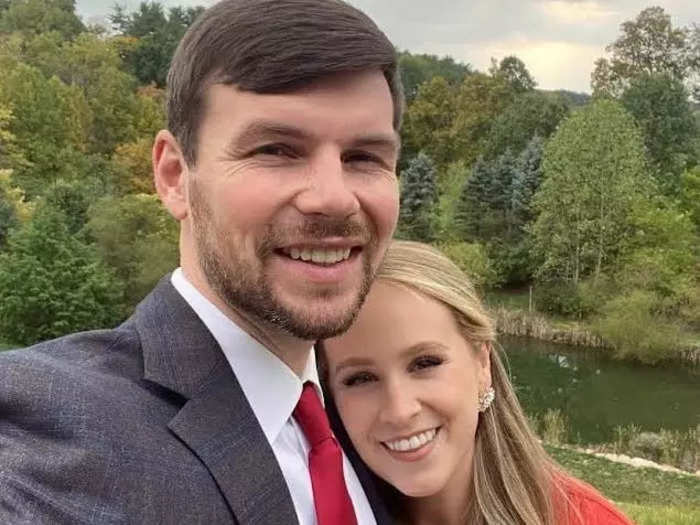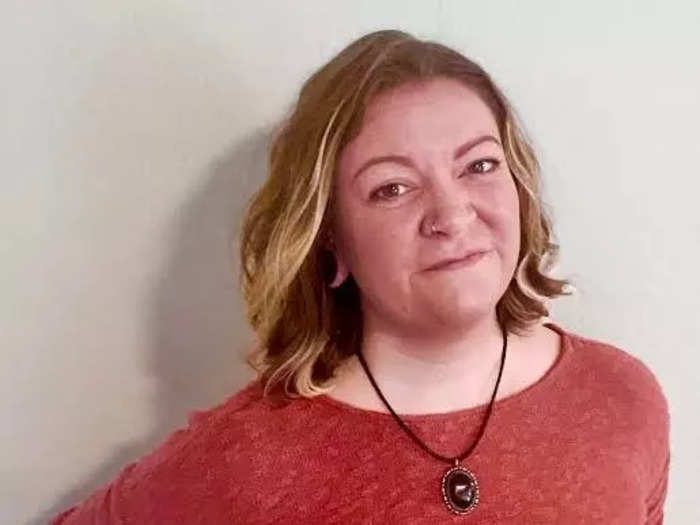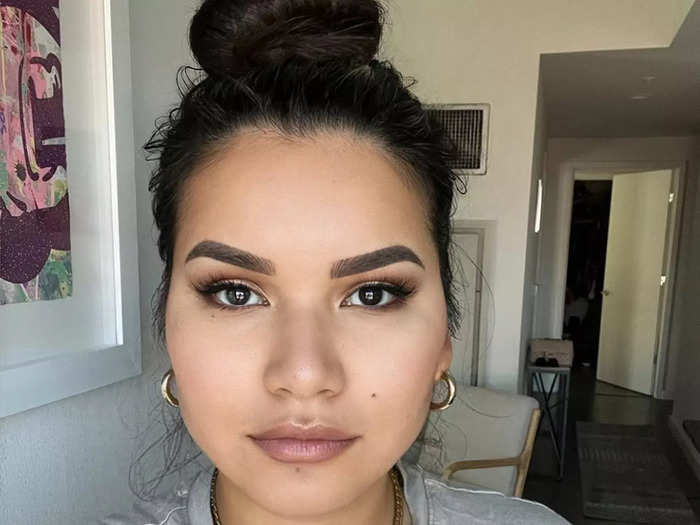Hunter Garnett (left), Corritta Lewis (center, in sunglasses), and Kavi Kardos earned at least $120,000 last year.Hunter Garnett, Corritta Lewis, Kavi Kardos
- We asked five Gen Zers and millennials earning six figures whether they feel like they've "made it."
- Some said "yes" because they don't have to worry about money and live a comfortable lifestyle.
Many millennials and Gen Zers dream of the day they can wake up and say, "I made it." Some say a higher salary is the key to reaching this goal.
Gen Zers, the oldest of whom are 26, are just entering the workforce, while many millennials, who are 27 to 42, are well into their careers. A SmartAsset analysis of Bureau of Labor Statistics data from the third quarter of last year found that the median salary of a 25- to 34-year-old in the US was $52,156, while the median salary of a 35- to 44-year-old was $62,244.
While these salaries are higher than they were a few years ago, they're far off from what many young people hope to achieve. In 2021, Americans said they'd need to earn $122,000 a year on average to feel that they're in good financial shape, according to a survey by Personal Capital and Harris Poll that polled more than 2,000 people.
But this was before inflation surged over the past few years. With the high costs of things like housing, college, healthcare, and childcare, what's enough for young Americans to feel like they've "made it"?
We asked five Gen Zers and millennials who earned six figures last year what that money has done for them, what it hasn't done, and whether overall they feel like they've made it. Insider viewed documents to verify their incomes.
"You rarely worry about money," at least when you don't have kids, Hunter Garnett said.
Garnett and his wife. Hunter Garnett
Garnett, a 30-year-old personal injury lawyer in Alabama, started his own law firm in 2021. He said that a little over a year ago he began paying himself a monthly income equivalent to $120,000 a year. He lives with his wife, who earned $87,000 last year including salary and commission.
He said he and his wife could live comfortably — he said they save roughly $5,000 or more a month after expenses, take several vacations each year, eat out frequently, are members of a gym, and own several cars. He said he felt like he'd made it.
"To me, you've 'made it' when you live in a house that you're happy with, you can go on several vacations, you're saving 10% to 20% of your income, and you rarely worry about money," he said.
Garnett said he and his wife, who each have several siblings, would love to have a big family someday. He said that while he knows this could make their finances more challenging, he's confident they'd be able to handle it.
"Kids will certainly affect our lifestyle," he said. "We will cut back on our trips. Instead of six to 10 trips per year, I'm sure we will take two to four trips per year. To be honest, we were frugal for so long that now we feel like we can handle any financial challenges."
Corritta Lewis said her salary "isn't what meets the eye" — housing and student debt make it feel like a lot less.
Lewis, center, said she didn't feel like she'd made it. Corritta Lewis
Lewis, 33, earned $200,000 in 2022 working as a consultant and running a travel blog on the side. The Ohio resident said that she had over a year's worth of emergency savings and a substantial retirement account and that she could pay all her family's expenses with plenty of money left over.
But she said she didn't feel like she'd made it, adding that her income on paper "isn't what meets the eye."
"After taxes, retirement, and health insurance, my salary is closer to $75,000 to $80,000," Lewis said, referring to her main consulting income. From that salary, she maximizes her retirement and HSA contributions.
Lewis said she and her wife, who works as a stay-at-home parent caring for their four-year-old son, were hoping to buy a home in Ohio but postponed because of the increase in home prices over the past few years.
She described her largest financial challenge as student debt. Lewis' wife has a considerable student-loan balance they're working on paying off, Lewis said, adding that she allocates 20% of each paycheck to these payments.
Lewis said that to truly feel like she's made it and to ensure financial security for her family without relying on a side hustle, she'd need to have a base salary closer to $200,000 a year. While she earned $178,000 from her consulting gig last year, she said she gets paid by the hour and therefore can't count on this pay.
"When I went to college, I had to use student loans and sacrificed a lot to pay back $50,000 in three years," she said. "I do not want my son to have student-loan debt as a factor when trying to start his life." Before college, the couple hope to send their son to an alternative school, where Lewis said tuition could be as much as $10,000 a year.
Lewis said a bigger salary would make it possible for her to take an extended maternity leave when she and her wife have a second child — she said her employer isn't required to give her any time off.
Jason is working two jobs to maintain financial security.
Jason, who isn't pictured, described himself as frugal. Getty/Edwin Tan
Jason, a 22-year-old software engineer based on the West Coast, earned $144,000 last year. His real name is known to Insider but has been excluded to avoid any professional repercussions.
Jason said he lives a pretty frugal lifestyle. He doesn't own a car, rarely goes out to eat, and lives in a one-bedroom apartment that costs $1,200 a month. He said that while he could probably afford to spend more, he's happy with his lifestyle — and he likes keeping his expenses low to avoid any financial challenges.
"To me, having independence from my parents and living on my own is making it," he said.
But he said that achieving this level of financial stability has required him to work two full-time jobs. He said that after working fully remotely as a software engineer for one tech company, he took a second fully remote job in a similar role roughly a year ago.
"I wanted to do it because I wanted to increase my income," he said. "I felt my workload at my first job was low enough, and I knew that if I couldn't handle it then I could simply quit one of the jobs."
He said that even after taking the second position, he typically works 20 to 30 hours a week total across the two jobs.
He added that while juggling two roles could be stressful at times, it gave him better job security — if he lost one job, he'd still have the other.
"For me, my current lifestyle feels like I've made it because I pretty much have everything I want," he said.
Housing-affordability challenges and career goals can persist for six-figure earners like Kavi Kardos.
Kardos Kavi Kardos
Kardos, a 36-year-old digital marketing director in Austin, Texas, earns $133,000 a year.
She said that in many ways she felt like she'd made it. She said she has plenty of savings for emergencies and retirement, as well as good health insurance. She added that she takes a fair number of trips, can afford the occasional nice dinner and shopping spree, and is proud of her career.
But she said that she still has career aspirations she hasn't met and that her salary isn't enough for her and her partner to do everything they'd like to do, such as buy a home in the location they want.
"I live in Austin, so if I wanted to buy a house right now, it would be very difficult for me to do that without moving pretty far into the suburbs," she said.
Kardos said that to find one anywhere near downtown Austin, she'd need to put down $115,000 to $150,000 — considerably more than the more standard 20% — because the market is so competitive.
"I just don't have that kind of money ready to go," she said "It would take a few more years of planning."
Margaret Pattillo says tough times can make you appreciate a big salary that much more.
Pattillo said she used to be in worse financial shape. Margaret Pattillo
Pattillo, a 25-year-old who lives in New York, earned $135,000 last year through her personal marketing agency.
She said she's able to dine out whenever she wants, and she owns a car. She added that she can comfortably afford day care for her dog and can put bills on autopay without having to worry about when they're due.
"It's the little things that give me peace of mind," she said.
Pattillo said she used to be in much worse financial shape, which has made her appreciate what she has now.
"Coming from a background where I've experienced having to scrape by, the tranquility of not worrying about where to live or how to eat and getting to enjoy experiences that life has to offer is gratifying," she said, adding that she began supporting herself financially at 16.
Still, Pattillo said she didn't entirely feel like she'd made it because she has much bigger career aspirations. She said that she also invests a lot of her money, which can make her feel as if she earns less than she does, but that she expected the short-term sacrifice to be worth it in the long run.





